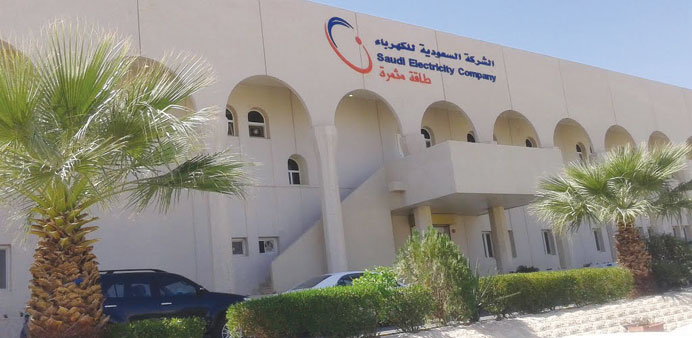Two of SEC’s Islamic bonds, typically used as a proxy for Saudi Arabia’s sovereign debt, lost the most among their peers last month, according to Bloomberg data.
Bloomberg/Dubai
Having the worst-performing dollar sukuk in the Gulf is proving to be anything but a hindrance to Saudi Electricity Co’s (SEC) plans to tap capital markets.
Two of the utility’s Islamic bonds, typically used as a proxy for Saudi Arabia’s sovereign debt, lost the most among their peers last month, according to data compiled by Bloomberg. Yet, it’s the very factor hurting the securities - the slump in oil prices eroding state revenue - that’s probably encouraging the company to consider fresh revolving credit facilities and a potential $1.5bn sukuk programme, according to Commerzbank AG.
“Their concern is that the government may start to take more structural measures, which may include a reduction in subsidies the company gets from the sovereign,” said Apostolos Bantis, a Dubai-based credit analyst at Commerzbank. The sukuk performance is “nothing specific to the company itself, it’s more a weakening perception for Saudi risk, and concerns about currency devaluation,” he said.
Costs for insuring the kingdom’s debt have skyrocketed, bets for a currency devaluation soared and the government has returned to the long-term domestic debt market for the first time in eight years after its main source of revenue plunged. Opec’s biggest oil exporter and the largest economy in the Arab world is reviewing its spending plans for next year, and may delay infrastructure projects, two people familiar with the matter said last week.
Formerly one of the region’s best-performing sukuk, the yield on Saudi Electricity’s 2043 and 2044 notes rose 49 basis points and 46 basis points respectively this year at 2.09pm in Riyadh, compared with an 18 basis-point drop for Middle East Islamic bonds on average through Tuesday, according to JPMorgan Chase & Co indexes. The two Saudi sukuk lost investors 3.5% and 2.5% respectively in August. The measure of how much investors must pay to insure against a Saudi default rose to the highest level since June 2012 last week, according to prices compiled by CMA.
Saudi Electricity didn’t immediately respond to a request for comment on Tuesday. The company’s sukuk programme may actually be part of the government’s broader issuance initiative, according to Bantis. “They will also use quasi-sovereigns” to help shore up finances, he said.
The kingdom may sell as much as 100bn riyals ($27bn) of bonds this year, and is seeking advice on how to cut billions of dollars from next year’s budget because of the slump in crude prices, according to people familiar with the matter. If the decline in oil and its military operations in neighbouring Yemen drag on, Saudi Arabia could face its biggest budget deficit in almost three decades.
Brent dropped 51% in the past 12 months to $48.72 per barrel. Saudi Electricity would “rather take a position now than wait six months and be in a worse situation,” Ahmed Shehada, the head of advisory and institutions at NBAD Securities, the brokerage of the UAE’s biggest lender, said by phone “It’s a prudent move.”

